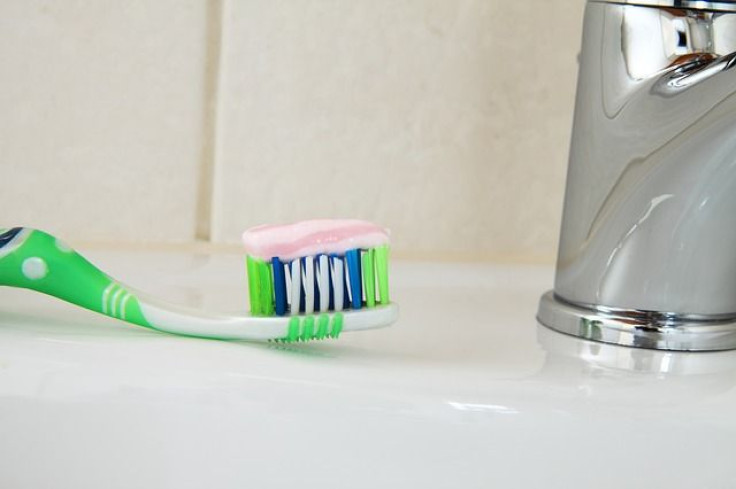Common Chemical Found in Toothpaste Could Be Increasing Your Risk of Allergies

Researchers have found that triclosan, a chemical used in cosmetic products like deodorant, soap, and toothpaste, has been found to increase the risk of allergies in children. Research has previously found the controversial chemical to have various health effects, like abnormal weight loss, disruption of the endocrine system, and birth defects.
The study was conducted in Norway as a follow-up to an American study that linked triclosan with increased allergy risk. Researchers from Norway confirmed that triclosan was linked with an increased risk for children's allergies.
The researchers tested 623 10-year-old children's urine for levels of Immunoglobin E (IgE). They found that children exposed to greater levels of triclosan had higher levels of IgE and increased rates of stuffy noses and hay fever.
In the United States, 80 percent of children's urine had detectable traces of triclosan. In comparison, 50 percent of children's urine had measurable traces of the substance.
Triclosane has come under fire since at least 2001. That year, Norwegian researchers found that 85 percent of triclosan came from cosmetic products. Of the cosmetic products, 75 percent of triclosan came from toothpaste. Since the study was conducted, many manufacturers have removed the chemical from their products. A list of companies that still use triclosan in various products, including cosmetics, kitchenware, and toys, can be found here.
It is unclear how much triclosan children are exposed to today, researchers say. The United States' Food and Drug Administration, for example, says on its website, "Triclosan is not currently known to be hazardous to humans...FDA does not have sufficient safety evidence to recommend changing consumer use of products that contain triclosan at this time."
Triclosan can change the bacterial flora on a person's skin, mouth, and digestive tract. Changes in the composition of "good" bacteria can increase the risk of allergies.
The study was published in the journal Allergy.



























